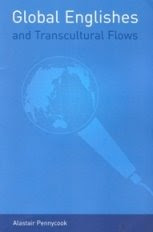In a recent blog (
8 March) I observed that final consonants cannot occur after a diphthong in Vietnamese; and this raises the possibility that vowels such as [ai] and [au] are not diphthongs at all but monophthongs followed by an approximant. And the same can be said about Malay. Let's think about this some more.
First, let's consider an English word such as
pie, which phonetically is usually shown as [paɪ]. If you say it backwards, you get
yup, which we write phonetically as [jʌp], where [j] is the approximant that occurs at the start of
yes. Now, if
yup is regarded as starting with an approximant, perhaps we should say that
pie actually ends with an approximant; so
if pie is
yup backwards, maybe its pronunciation should really be shown as [pʌj].
The same applies to Malay. We seem to have diphthongs at the end of words such as
capai ('to achieve'); but maybe this is not a diphthong at all, but a monophthong followed by the approximant [j] (usually written as 'y' in Malay spelling). So perhaps
capai would be better written as
capay. Similarly,
kau ('I') might be better written as
kaw.
Evidence supporting this analysis (provided by my colleague Adrian Clynes) is that words like
kait ('hook') and
baik ('good') are basically two syllables, not one, because the syllable structure of Malay is CVC (consonant vowel consonant), and you can't have two consonants at the end of a syllable in Malay.
How do we know this? Well, the most important thing is native speaker intuitions, as many speakers of Malay seem to feel that words like
kait and
baik are two syllables. But further evidence can be found by considering morphology. If you take a monosyllabic root, such as
had ('limit') or
sah ('valid') and add the
meng- prefix, an extra syllable gets inserted; so you get
mengehadkan ('to limit') and
mengesahkan ('to confirm'). But the same doesn't happen for bisyllabic roots, such as
kait and
baik ‒
mengaitkan ('to link') and
membaiki ('to improve') are perfectly well-formed, without the need for an extra syllable.
Sorry this is a bit heavy! But even if you find the analysis a bit complicated, just remember this:
sah and
baik seem to be treated differently, because
baik is actually two syllables; and this is because the [a] and [i] in words such as
baik occur in different syllables. In contrast,
the second syllable of capai probably has a monophthong vowel followed by an approximant. In conclusion, there are no diphthongs in Malay.
 This is quite a substantial change and it may have a big impact on language usage in Brunei. But what is quite surprising is that there is no discussion of the rationale for this change anywhere in the SPN21 book.
This is quite a substantial change and it may have a big impact on language usage in Brunei. But what is quite surprising is that there is no discussion of the rationale for this change anywhere in the SPN21 book. 


























